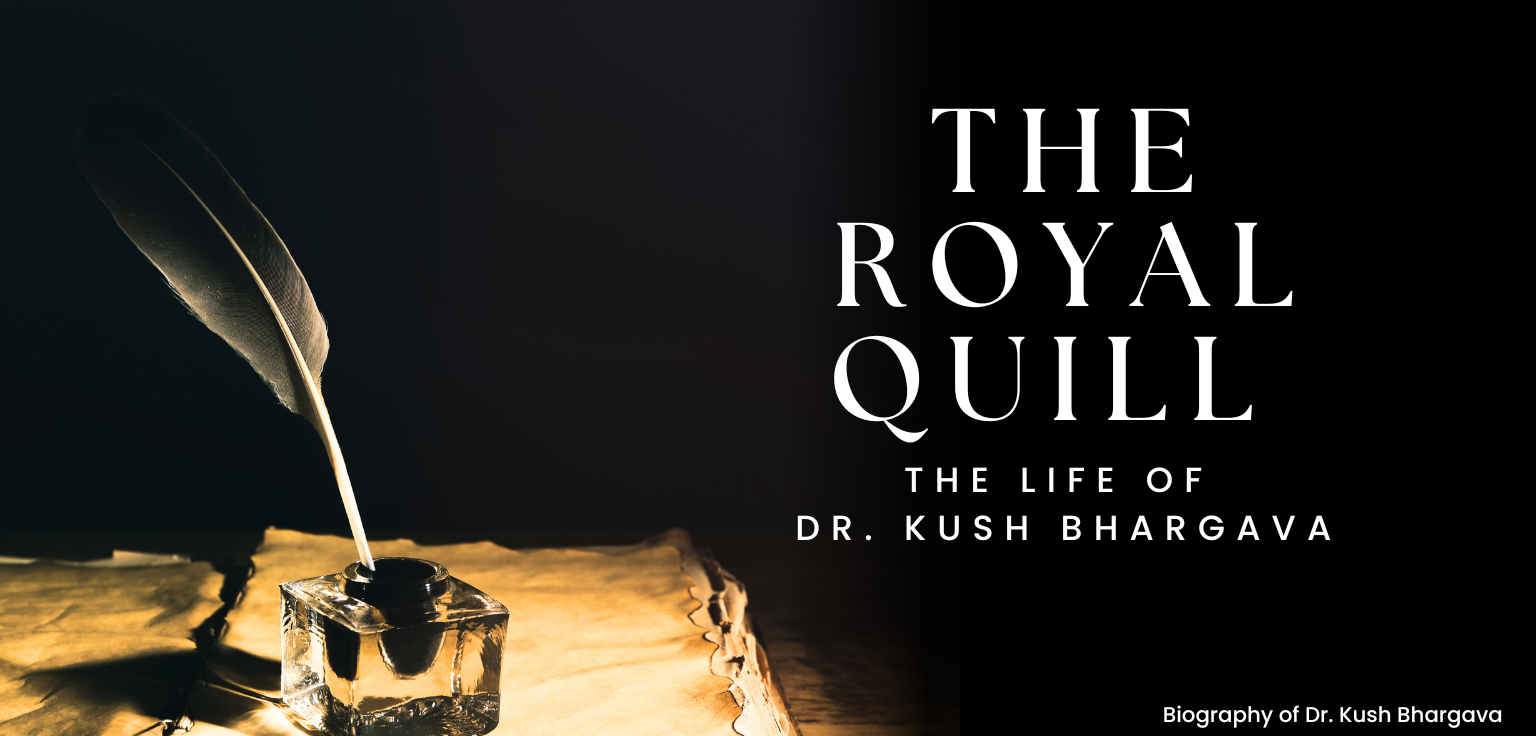
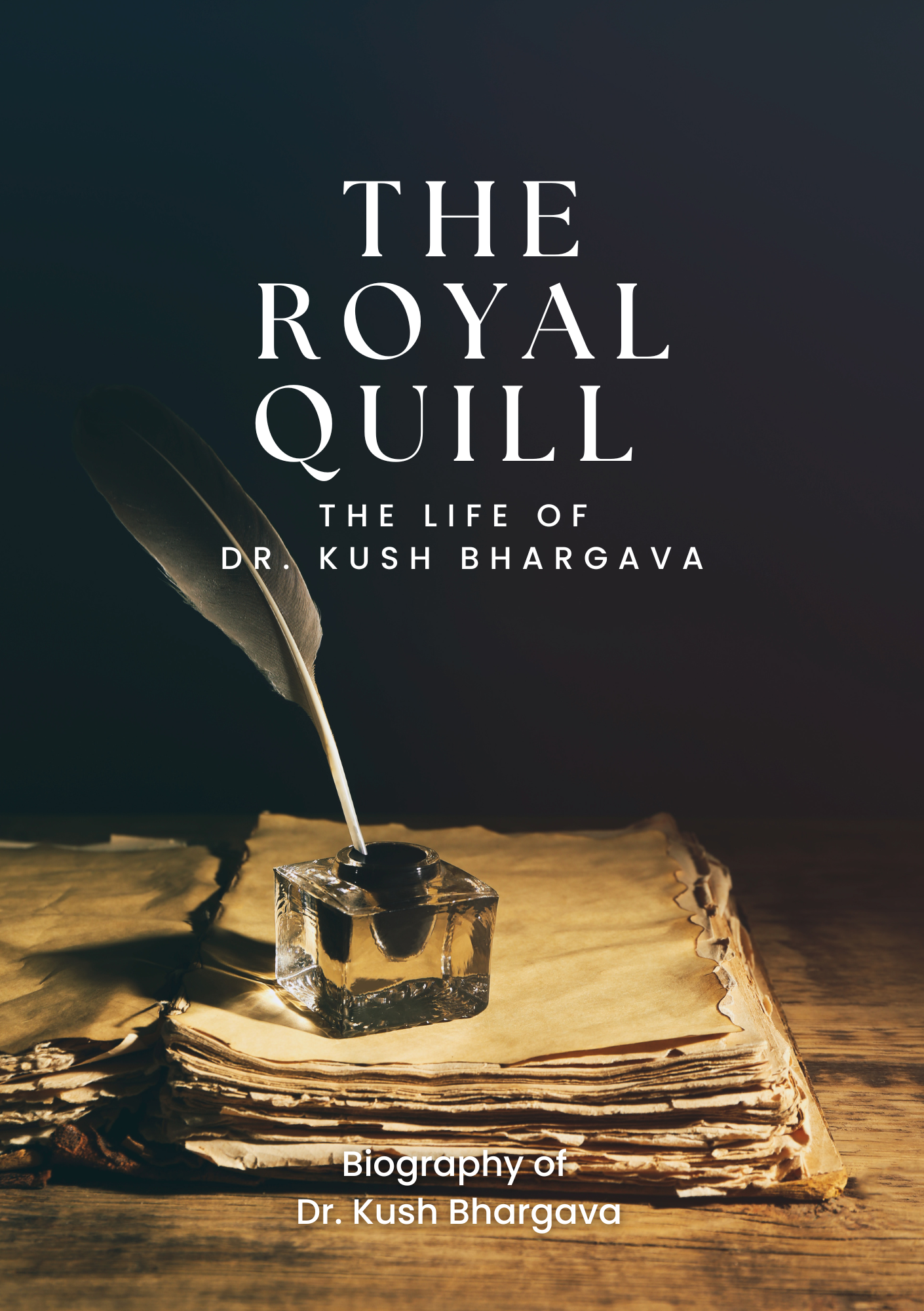
“Royalty is not about pomp and pageantry—it is about responsibility, grace, and the courage to serve.”
Dedication
“To be rooted is perhaps the most important and least recognized need of the human soul.“ — Simone Weil
This book is lovingly dedicated to my parents, who lived with grace, strength, and generosity.
To my father—a true Raja in spirit. A fearless man, a kind giver. Your strength came from your values, not your title. Your legacy lives in me.
To my mother—the quiet strength behind it all. Your wisdom shaped my thinking, and your love gave me peace.
To my family—thank you for being my guide, my support, and my inspiration through every season.
This story may carry my name, but it belongs to all of you.
With love and gratitude,
Dr. Kush Bhargava
Phase 1: Born of Legacy, Raised in Grandeur
“To be born in a palace is to be destined for history.“-Napoleon Bonapart
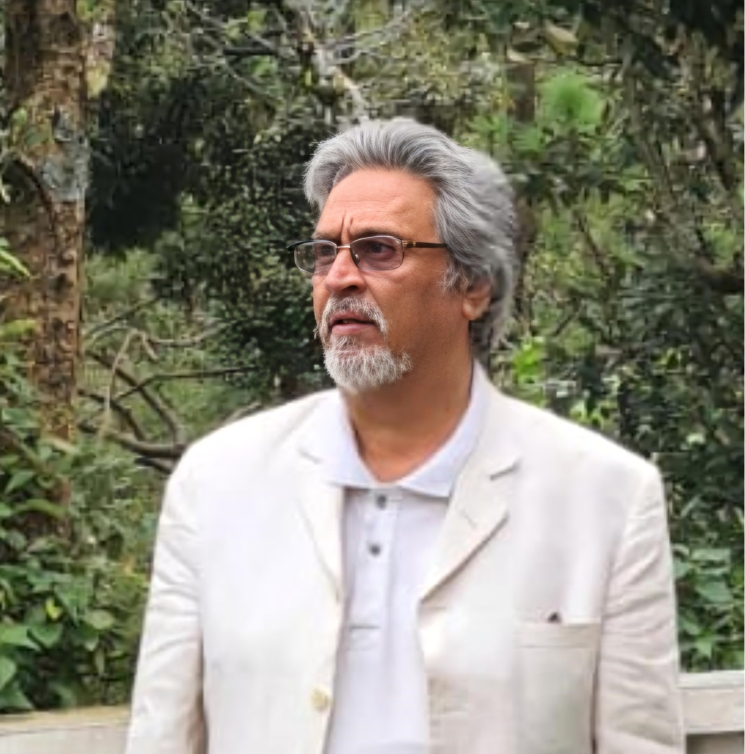
In the timeless city of Lucknow, where history lingers like the scent of attar in the air and every corner sings the songs of nawabs and poets, stood a mansion that needed no introduction—Bhargava Kothi. It wasn’t just a home; it was a living museum of elegance and eminence. With over fifty stately rooms, high ceilings adorned with hand-carved wooden beams, antique chandeliers imported from Europe, and sprawling verandas overlooking lush courtyards, the Kothi was a testament to an era where grandeur was lived, not displayed.
Here, amid Persian carpets that whispered footsteps of ministers and scholars, under frescoed ceilings that had witnessed debates on art, politics, and poetry, Dr. Kush Bhargava was born. He did not enter an ordinary world—he entered a legacy.
His great-great-grandfather, a visionary far ahead of his time, had introduced the art of printing to the region—a technological and intellectual leap that brought literature, learning, and information to the masses in an age when access to knowledge was a privilege. This bold foray into the world of publishing not only transformed the Bhargava name into one associated with progress but laid the intellectual foundation upon which future generations would build.
And then there was his father—a man of commanding presence and quiet strength, known across Awadh not merely as a Raja in name, but in the truest sense of the word. He was a master of the jungle and a lover of its silence—a renowned hunter, who could track a tiger through the dense Terai forests, and yet, in the next breath, could sit humbly beside villagers to understand their struggles. But it was the philanthropy of the family that immortalized them—his generosity of spirit, his contributions to schools, hospitals, and livelihoods. To the people of Lucknow, he was not just nobility; he was nobleness personified.
Dr. Bhargava’s childhood was a chapter straight out of an epic. The mornings began with classical music echoing through marble halls, played softly on a grandfather’s gramophone, and evenings often ended with candlelit discussions over ancient scriptures, Shakespearean sonnets, or national politics. The library of Bhargava Kothi housed rare first editions, old manuscripts, and portraits of ancestors who had walked beside kings, freedom fighters, and literary giants.
Among all this, young Kush grew not just in age, but in thought. He watched. He listened. He absorbed. He was surrounded by history—both written and living—and this immersion sculpted in him an early awareness of legacy and responsibility. The same corridors where his forefathers debated the future of publishing or planned their philanthropic initiatives, he walked as a child, letting his own dreams take shape. He played chess beneath Mughal arches, solved puzzles beside marble fountains, and listened to bedtime stories of valour, sacrifice, and culture whispered by family elders whose voices carried generations of memory.
Yet, amid this Aristocratic upbringing, humility was never compromised. His parents, despite their grandeur, instilled in him a strong sense of purpose and compassion. He was taught that true greatness lay not in being born into wealth, but in what one does with it. That the weight of a crown is not in gold, but in its expectation to serve.
This was the world into which Dr. Kush Bhargava was born. A world of chandeliers and scriptures, of hunting rifles and humanitarian dreams, of royal titles and revolutionary ideas. A world where past and present danced in harmony.
And as he took his first steps on the polished stone floors of Bhargava Kothi, a new chapter in that legacy quietly began—one that would span across politics, cinema, literature, sports and intellect. The boy born amidst books and brilliance was destined not merely to inherit history, but to create it.
Phase 2: Education of a Gentle Aristocrat
“Education is the kindling of a flame, not the filling of a vessel.“— Socrates
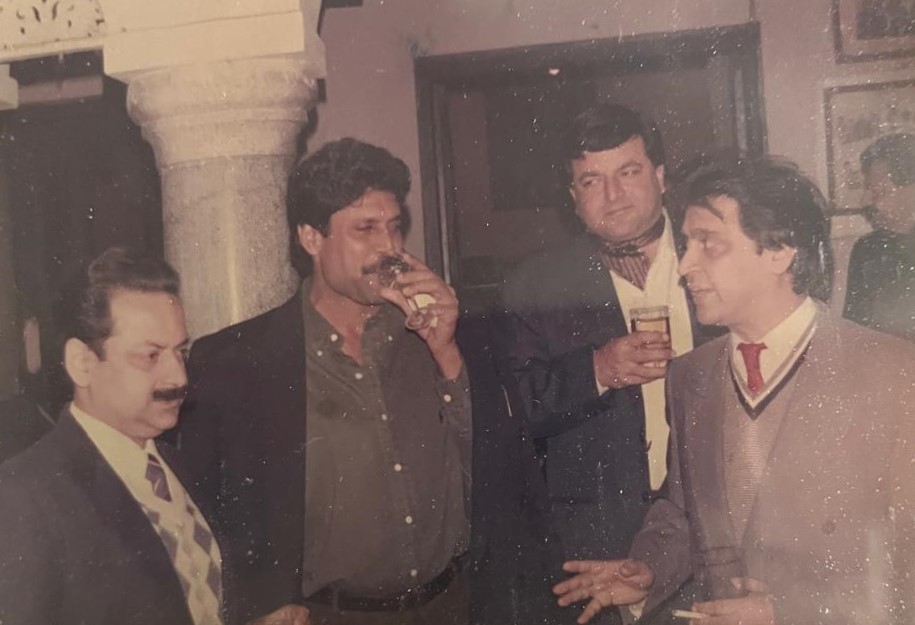
The towering arches and ivy-clad buildings of Lucknow University had long stood as guardians of knowledge and silent witnesses to the transformation of young minds. It was here—amid shaded courtyards, ancient banyan trees, and echoing corridors steeped in history—that a young Kush Bhargava arrived, not merely as the heir of an aristocratic lineage, but as a seeker of truth in a modernizing world.
Though his surname carried the weight of nobility and history, Kush walked the campus not with entitlement, but with quiet curiosity. His demeanor was marked not by flamboyance, but by elegance. He wore simplicity like a badge of honour, yet there was an unmistakable aura about him—something unspoken that set him apart. Professors noticed his keen gaze and thoughtful pauses during lectures, while peers were naturally drawn to his calm presence and sharp intellect.
Where others brought textbooks, Dr. Kush brought ideas. He wasn’t satisfied with surface-level learning. He questioned, deconstructed, and rebuilt concepts with the precision of a philosopher and the soul of a poet. He was often found under a tree with a notebook in hand—not just copying what was taught, but reimagining it through his own perspective, challenging accepted truths and exploring deeper meanings.
He approached each subject with a multidisciplinary mindset. Literature moved him, mathematics honed his logic, and history provided him with essential context. His essays reflected layered philosophical thought, often referencing ancient Indian scriptures alongside modern thinkers. His eloquence in debates left a lasting impact, but he never sought attention—his ideas spoke for themselves.
Outside the classroom, Dr. Kush’s love for intellectual challenges continued. He was a consistent chess champion at school, engaging in matches that reflected his long-term thinking. His passion extended to solving cryptic crosswords and Sudoku puzzles—completing nearly ten thousand of each over time. These weren’t just hobbies; they were tools that sharpened his clarity and mental discipline.
What truly made him stand out was his ability to learn deeply. In a time when loud voices often dominated, Dr. Kush stood for thoughtful insight. He could sit quietly through a heated discussion and offer a single sentence that brought clarity and unity. His teachers saw in him not just a student, but a thinker whose ideas often outpaced the curriculum.
His years at Lucknow University were far more than academic—they were transformative. Here, his aristocratic roots merged with the open spirit of academia. He made friends across backgrounds, discussing poetry with one group and politics with another. He never confined himself to one circle; his mind embraced all ideas and perspectives.
This wasn’t just the story of a young aristocrat earning a degree—it was the shaping of a visionary mind. This chapter of his life was not about grades or titles; it was about discovering his purpose and refining the values that would guide him forever.
Phase 3: T he Call of the Nation
“The best way to find yourself is to lose yourself in the service of others.“— Mahatma Gandhi
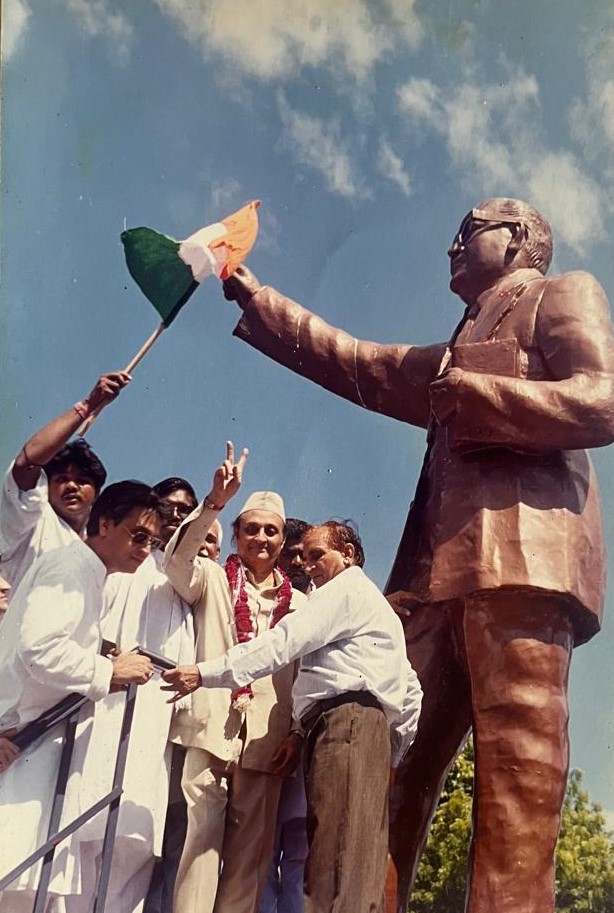
Within the hallowed walls of Bhargava Kothi, where intellectual debates often morphed into political discourse, there was an undercurrent—a calling to serve, a sense of responsibility that transcended family heritage. The Bhargava lineage, rich in tradition, had always carried the weight of social consciousness and civic duty, so it was no surprise when Dr. Kush Bhargava found himself drawn to the heart of India’s political landscape. From the early days of his life, politics was never a distant concept; it was an inherent thread woven into his family’s legacy, one that was discussed as regularly as matters of literature, philosophy, or culture.
The corridors of Bhargava Kothi were filled with passionate discussions of national affairs, social justice, and the future of a young independent India. These were not just conversations between the learned members of the family, but also with freedom fighters, seasoned statesmen, and political philosophers who had contributed to shaping the country’s destiny. It was against this backdrop of unwavering patriotism and dedication to the nation that Dr. Kush’s interest in public service began to bloom furthered by getting an opportunity to serve the people of Lucknow as a Chief Warden of Civil Defence. It was in this capacity that he served Lucknow, playing a significant role in preventing the ever-threatening Shia-Sunni Riots.
Dr. Bhargava’s entry into the Indian National Congress was more than a mere political affiliation; it was a natural extension of his intellectual curiosity and deep-seated love for his country. For over two decades, he became a steadfast advocate of the people’s causes, walking shoulder to shoulder with some of India’s most revered leaders—freedom fighters turned statesmen and idealists transformed into lawmakers. His role was never to seek attention, but to work quietly behind the scenes, supporting causes that aimed to uplift the marginalized and strengthen the democratic fabric of India.
He became known for his subtle yet powerful presence in political gatherings, where his voice was rarely raised but always heard. His speeches, though infrequent, left a lasting impact. Each word he spoke carried the weight of history, resonating with the wisdom passed down from his ancestors, yet rooted firmly in the ideals of modern India. When he spoke, it was with a clarity and conviction that blended nobility with nationalism, and the people listened—not because of his Integrity, but because of the deep sense of integrity and knowledge that emanated from his words.
But even as he made his mark in the political arena, Dr. Bhargava never sought the limelight. Unlike many who thrived in the applause and attention that came with political life, Dr. Kush was always more comfortable in the shadows, letting his actions speak louder than any oratory could. His rare speeches were considered gems—short, succinct, and filled with purpose. They reflected a man who had inherited the weight of a long-standing legacy, but had chosen to carry it with humility and grace. His contributions were not always in the form of public statements or grand gestures; rather, they were expressed in his quiet yet steadfast support for policies that aimed to heal the country’s wounds—whether it was through educational reforms, rural development, or social justice initiatives.
However, after eighteen years of active political involvement, Dr. Bhargava made a decision that shocked many: he chose to step away from the political scene. His decision was not borne out of frustration but disillusionment with the party. It was, rather, a moment of quiet contemplation, a realization that his true calling lay elsewhere—a journey that required him to shift focus and serve the nation in a different way. In choosing to walk away from the arena of active politics, he was not turning his back on the country, but answering a higher calling—one that resonated with his soul, one that beckoned him to serve in ways that would have a lasting, quieter impact.
It was in this moment of introspection that Dr. Kush Bhargava demonstrated the true essence of leadership—the ability to recognize when a chapter had closed, and to embrace the unknown with the same humility that had defined his earlier years. His step back from politics was not a retreat; it was a pivot towards a deeper, more enduring form of service, a service that would unfold through his intellectual pursuits, his cinematic contributions, his writings, and his role as a mentor to the next generation of leaders.
Thus, Dr. Bhargava’s political journey was not marked by loud speeches or grandstanding. Instead, it was defined by principled action, quiet dedication, and a profound understanding that true service is not about recognition, but about the impact you leave on the lives of others. It was a journey that saw him embrace the ideals of freedom, democracy, and justice, while also recognizing that sometimes, the most meaningful contributions are made from the margins, not the centre stage.